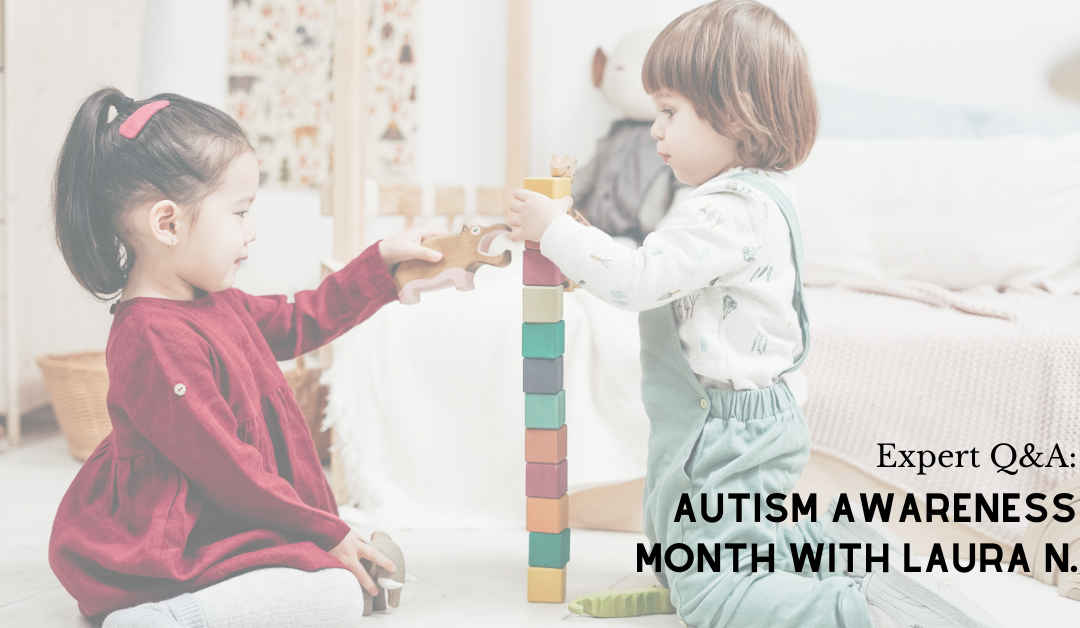Autism Awareness/Acceptance Month is recognized in April across the nation. During this month, it’s imperative that we, as a community, increase our knowledge, awareness and acceptance of the common disorder, while we continue to remove the stigma surrounding the topic. The Autism Society has deemed “Celebrate Differences” as the theme of this year’s recognition month. In doing so, the goal is to build a better awareness of the signs, symptoms and realities of autism. To celebrate differences alongside the Autism Society, we sat down with Laura N., director of South Bay’s Birth to Three Autism program, to further discuss the ins and outs of Autism Spectrum Disorder.
For those who don’t know what Autism Spectrum Disorder is, can you explain?
Autism Spectrum Disorder, commonly referred to as ASD, is a developmental disability that’s typically diagnosed at a young age – as young as 12 months old. This disorder is based on social communication, as well as restrictive and repetitive behaviors that often create behavioral challenges for the diagnosed individual.
What are the warning signs parents can look for in their children?
Some common characteristics include:
- Not pointing to objects
- Not making or avoiding eye contact
- Wanting to be alone
- Having inappropriate expressions. For example, those not diagnosed may smile and laugh when someone tells a joke, but those diagnosed may not provide the same reaction.
- Lack of interest in socializing or pretend play
- Repetitive actions
- Rigid in daily routine – change can be challenging
- Losing skills such as speech
Are there common misconceptions about autism we should be aware of?
One common misconception is that those with ASD may not have a high quality of life. In fact, with proper intervention, we often see many autistic individuals live very successful, happy lives.
Talk about South Bay’s treatment plans for children with ASD.
We provide our Early Intervention and Birth to Three programs for children with autism. Not only can we evaluate and diagnose children, but the family can choose to continue services with our talented team of Applied Behavior Analysis (ABA) therapists through our Early Intervention program. Providers on both teams include speech pathologists, language pathologists, developmental therapists or occupational therapists. Also, each child is assigned a Board Certified Behavior Analyst (BCBA) to their team. Our model for each route sets the family as the leader, and we provide intervention techniques based off of the parent’s preferences – since they are the main therapist at home.
How can we, as a community, raise awareness about autism?
Typically – pre-pandemic – we could show support by creating posters, participating in marches, talking with other providers and by providing resources. Now, I think the biggest way to help is through parent education and helping them identify red flags for ASD. The more we educate our community on those red flags, the easier it is to ensure that pediatricians and parents know the signs and are able to have children evaluated. With an early diagnosis, we are able to provide intervention and hopefully see negative behaviors decrease while positive behaviors increase – this allows the child the ability to reach their full potential.
Is there a special moment you can share that you’ve experienced working with children with ASD?
We’ve provided these services in Connecticut since 2012, and one of our first families brought in their little boy who had no speech skills; wasn’t pointing at objects he referred to; and had little interest in engaging with his siblings. Their priority was to have this child engage with his siblings. After a year of teamwork, the child made incredible progress – he had about 25 words in his vocabulary; played ball; and sought out playtime with his siblings. This was such a huge deal for the family! Three years ago, we received a letter, and it was a picture of this child with his arm around his brother in their baseball uniforms. In the letter, the family thanked us for our assistance and let us know that the child and his brother were now best friends. It was so wonderful to see that family reach their goals set at the beginning of our services. We always appreciate hearing from families – even years down the line.
If you or someone you know is interested in services that help children diagnosed with Autism Spectrum Disorder, our team of certified staff members and clinicians want to help. Through our Early Intervention and Birth to Three services, we help children diagnosed with ASD increase positive behaviors that lead to a successful, happy life. For more information, contact us at 508-427-5362 or click here.

